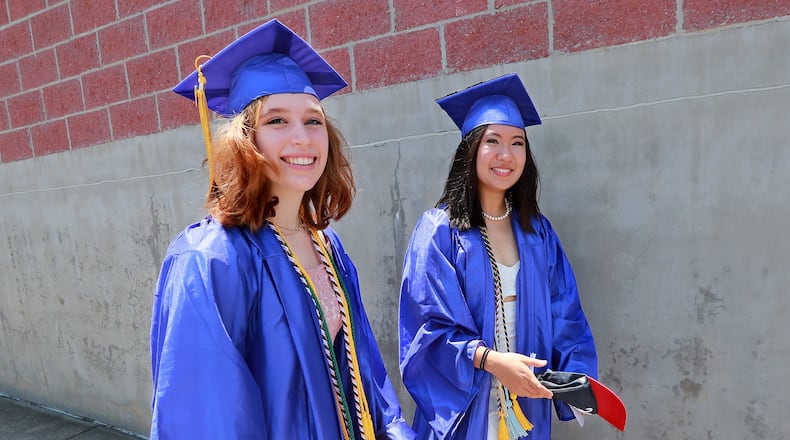When Gerald Pollack was in high school, he couldn’t find a course that matched his interest in the environment.
Now, a couple of decades later, he teaches the AP environmental science course at Chattahoochee High School in Johns Creek. Over the past decade, enrollment in it has grown from a meager 20 students to more than six times that number.
Pollack, who watched college friends go into, and then exit, the oil and gas industry, sees a new generation of teenagers focused on careers that would bend society into a more environmentally conservative future. Unlike him, though, they have more institutional support to prepare for the technical, social and personal challenges ahead.
The pay is better, too.
“When I tell them stories, I don’t think it deters them. I think it helps them understand what is good and bad about the profession that they’re looking at,” said Pollack, who has a Ph.D. in chemistry with an emphasis in geology from Georgia State University. “I wish somebody was there to tell me when I was graduating from high school what job prospects looked like and what the real workplace environment was like.”
The new generation will have more financially viable career options, as the economy gradually shifts from one reliant almost exclusively on carbon-based fuels drawn from a finite underground supply to one deploying a broader array of permanent energy sources, such as sunlight and wind. The new generation also has an eagerness to do something about climate change and waste.
The growing interest in what’s called “sustainability” is manifest at Chattahoochee High in students such as Emily Guo and Rachel Rigsbee. Guo, in what was admittedly an unsustainable experiment, destroyed some of her parents’ pots while distilling biodiesel in the kitchen for a science project. She used chemicals from school to harvest the fuel from kudzu, which led to an internship at Georgia Tech last summer. She got her diploma Tuesday and is off to Stanford to study the intersection of science, technology and society.
Guo, who describes herself as a “big nature person,” wants to learn the hard science that can transform an economy. But, perhaps due to her exposure to Pollack and his class, she’s also aware of the sociological element: “I’m not just interested in engineering. I’m also interested in public policy and how everything ties together,” she said.
Rigsbee, who graduated with Guo Tuesday, will major in environmental engineering at Tech. When she was in elementary school, she dreamed of becoming a poet. But a television documentary about desertification and the other environmental effects of the nation’s agricultural system changed the course of her life. As president of Chattahoochee High’s “green” club, she led recycling initiatives. She imagines a career involving better ways of handling waste.
“If there’s anything I can change, I hope it’s recycling methods,” said Rigsbee, who has concluded that the current system is “appalling” in its inefficiency. She said her friends see her as an “insane hippie,” but she is, she said, a pragmatic person concerned about making a living.
Lucky for her, the job market has evolved along with her interests. The U.S. Bureau of Labor Statistics has reported growth in "green" occupations such as environmental science and environmental engineering. Better yet for students on her trajectory: The BLS reported in April that wages are relatively high. The median pay for environmental engineers last year was $87,620, well above the $38,640 median annual wage for all occupations.
G. Wayne Clough sees that as just a small part of a growing trend across the economy. The president emeritus of Tech recently co-authored a national report about expanding the role of environmental engineers in curbing climate change and waste while meeting water, food and energy needs. He also still teaches at Tech.
“What I see is the students all want to do something about serious issues like climate change and environmental degradation,” he said in a telephone interview from his home in North Georgia. Climate change is one of the first things they want to talk about in his classes on business and international affairs, he said.
From Clough’s vantage, the economic “switch has been flipped” as solar energy and other alternative power sources have become cheaper than fossil fuels, and “hard-nosed” business people have embraced them.
Clough also sees an impatient new generation. “They realize that those of us who are a little older handed them a pretty bad hand, and if we don’t do something about it, some very serious consequences can happen,” he said.
Rigsbee, the former Chattahoochee High environmental club president, would agree that many students are concerned. Getting them to commit to action wasn’t so easy, though. She tried to enlist some of the 1,900 students there in a “zero waste” initiative for a week, a challenge to avoid consumption that produces trash.
Four or five participated, she said.
About the Author
Keep Reading
The Latest
Featured




